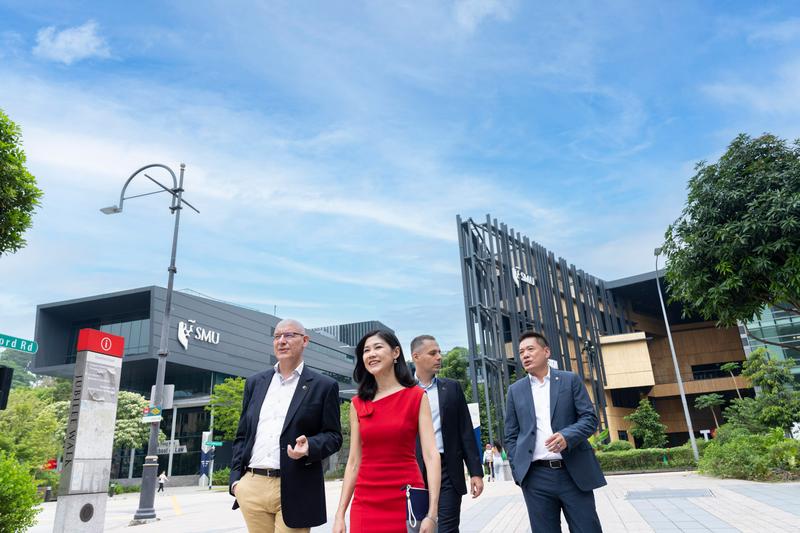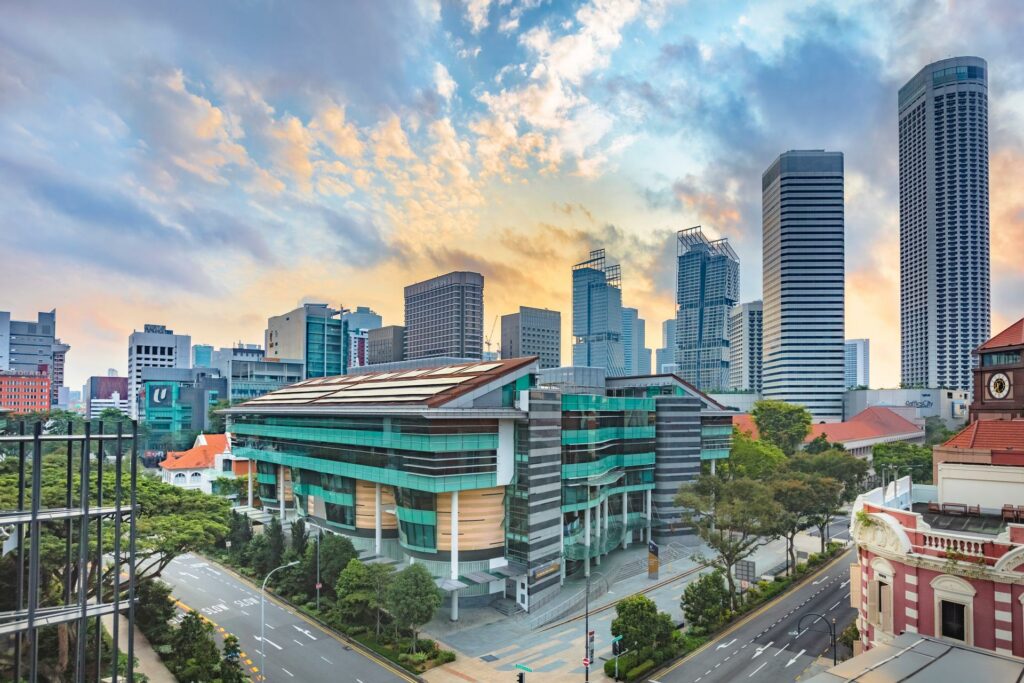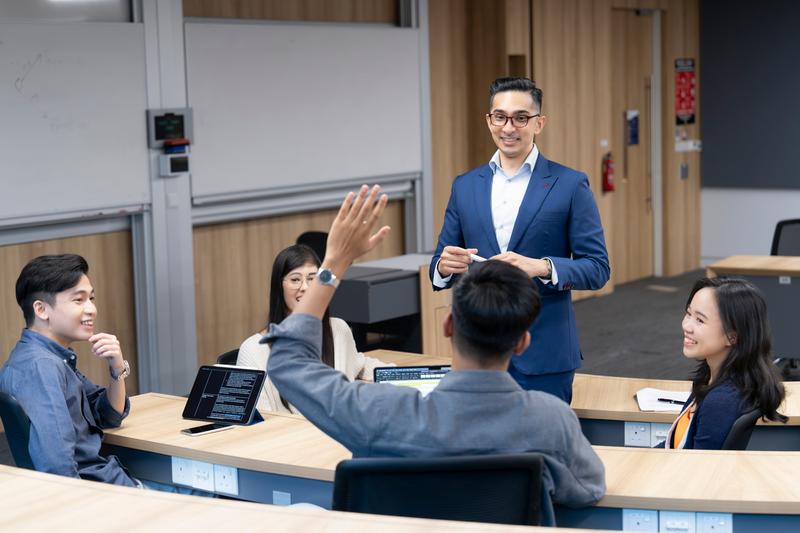Future Business Leaders: Inside SMU’s EMBA & MBA Programs
Singapore Management University (SMU) has established itself as a leader in business education, offering both Executive MBA (EMBA) and MBA programs designed to shape the next generation of business leaders. While both programs focus on three key objectives—Digital Transformation, Sustainable Living and Growth in Asia—they cater to distinct student profiles with different professional goals.
The EMBA program is tailored for seasoned executives aiming to transition from functional roles to strategic leadership positions. Designed as a modular program, it consists of six-day intensive blocks spread over several months, allowing professionals to minimize work disruption while maximizing learning impact. The EMBA also incorporates international residential blocks at SMU and partner campuses worldwide, covering the biggest global markets in Europe, the U.S. and Asia. A major emphasis is placed on leadership development, with many participants securing promotions or more fulfilling roles upon graduation.
Peer learning is a critical feature of both programs. “A well-curated class exposes you to people from different industries and experiences, creating a unique learning opportunity, ” says Professor Ser-Keng Ang, Academic Director of SMU’s EMBA and MBA programs. The interactive classroom environment allows professionals—such as an oil and gas executive and a healthcare leader—to challenge each other’s perspectives on critical business issues. Faculty play a crucial role in facilitating discussions, ensuring that students gain meaningful insights beyond theoretical knowledge.

The MBA program is structured to accommodate early- to mid-career professionals looking to advance or pivot in their careers. Full-time MBA students typically seek a career change, while part-time students balance work and study for personal and professional development. Flexibility is a core feature, with four intakes per year and adaptable completion timelines: 10 to 15 months for full-time students and 15 to 18 months for part-time students. To cater to diverse career aspirations, the program offers multiple experiential learning pathways. Aspiring entrepreneurs can opt for the “New Venture Practicum” to develop and refine business plans instead of participating in a traditional internship. Meanwhile, many part-time students, often sponsored by their employers, engage in a “Management Study Project, ” tackling real-world business challenges within their organizations.

SMU’s commitment to industry relevance is reflected in its curriculum, which continuously adapts to evolving business trends. The LKCSB Advisory Board, composed of influential Asian business leaders, helps shape the program’s direction, integrating key topics such as environmental, social and governance (ESG) issues, AI, business analytics and digital transformation.
“ESG has become important, so we ensure every professor integrates it into their courses, ” Ang explains. Just like running a business, SMU takes an entrepreneurial and agile approach to program development. “We experiment, and if we fail, we fail fast and move on to the next idea, ” he states, emphasizing the university’s commitment to staying ahead of business trends and equipping students with the most relevant skills and knowledge. This industry-aligned approach ensures that graduates remain competitive and well-equipped for future challenges.

The university’s strategic location in Singapore’s central business district provides a distinct advantage, especially for part-time MBA students who commute between work and class. Real-world learning is further enhanced through industry speaker sessions and fireside chats, where senior executives share their insights and career journeys. Networking is a key element of both programs, with alumni engagement playing a significant role in fostering connections and career growth. The EMBA program in particular is designed to cultivate high-level professional networks, ensuring that students build relationships that extend beyond the classroom.
A unique feature of SMU’s EMBA and MBA programs is their commitment to lifelong learning. Alumni are invited to return annually to take an elective for free, enabling them to stay updated on new business trends and refine their skills. “Let’s say, years later, you join a company that grows through acquisitions—our alumni can take my M&A elective to upskill,” Ang says. International study segments further enhance global exposure, with recent cohorts traveling to Europe to explore luxury branding, family business management and supply chain strategies.

Diversity and inclusivity are integral to SMU’s approach, particularly in the EMBA program, where the current cohort comprises 52% women. “The EMBA is not about filling the classes…but making sure that you fill the classes with the right people, ” Ang emphasizes. The program fosters a safe space for open dialogue and intellectual exchange, ensuring that students feel comfortable discussing complex topics without fear of judgment.
Through its focus on digital transformation, sustainability and Asia’s growth, SMU continues to cultivate future leaders who drive meaningful change in their industries. With a rigorous academic structure, a diverse student body and strong industry connections, SMU’s EMBA and MBA programs remain premier choices for professionals looking to elevate their careers.
As part of its commitment to preparing business leaders for an evolving global landscape, SMU LKCSB invites professionals to an exclusive Masterclass by Dr. Ang Ser Keng on Saturday, March 29 at the Tokyo American Club. Titled Climate Risk and Financial Stability: Preparing for the Future, the session will explore the impact of climate risk on global financial systems and strategies for building resilience. This thought-provoking evening will also include a networking dinner, providing a valuable opportunity to connect with industry peers and SMU alumni.
Reserve your spot today and feel free to invite a friend by sharing the registration link.

